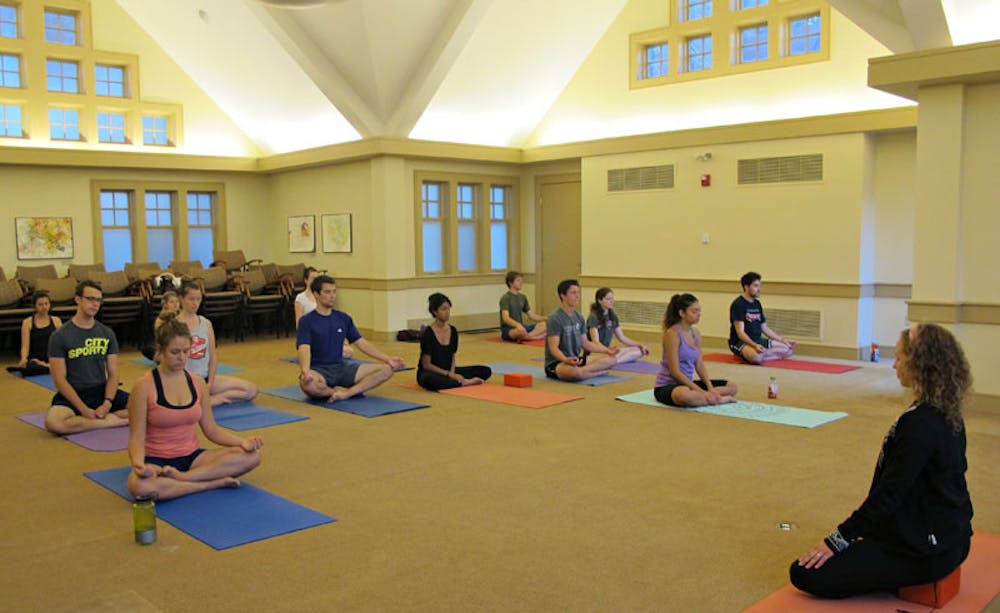Yoga may have potential health benefits for people suffering from bipolar disorder, according to recent findings by University researchers.
“We have just completed a larger study of yoga as an adjunctive treatment for people with unipolar depression,” wrote Lisa Uebelacker, an associate professor at the Alpert Medical School and lead author of the study, in an email to The Herald.
“We think yoga teaches people how to practice mindfulness: a non-judgmental focus on experiences in the present moment,” Uebelacker wrote. A possible way to abate suffering is to learn how to accept any and all difficult emotions, and to acknowledge that change is imminent, Uebelacker added.
An online survey sent out to people with bipolar disorder who practice yoga gathered many positive responses Uebelacker and colleagues reported in their study, which was published in the latest issue of the Journal of Psychiatric Practice. Approximately one in five respondents deemed yoga “life-changing,” and others acknowledged that the meditative activity lessened anxiety and stress.
But “it’s possible that you want to avoid any extreme practice, such as extended periods of rapid breathing,” Uebelacker said in a University press release, as she responded to the few negative reactions catalogued in the survey.
“I do recommend yoga to most of my patients for many different conditions — not just bipolar disorder,” said David Kahn, a Providence-based licensed psychiatrist who focuses on many psychological issues and was not involved in the study. A student of yoga for three decades, Kahn said he particularly appreciates pranayama yoga, which employs breathing control exercises and emphasizes relaxation and meditation.
“Yoga has a lot of powerful benefits for anybody, especially in optimizing mental and emotional balance,” Kahn said.
Various studies show that cognitive therapy focused on mindfulness may avert future depressive episodes in people with persistent depression, Uebelacker wrote. “We usually study yoga in concert with pharmacological approaches to treatment. We don’t think it needs to be either/or. It’s best if people have many options for how to promote good psychological health.”
Continuing research will also involve patients with bipolar disorder and depression. The main focus will be a pilot study comparing the effects of yoga to those of self-help, wrote Uebelacker. She will work once again with Lauren Weinstock, assistant professor of psychiatry and human behavior, who assisted with the present study. A future goal is to create a significantly larger trial that will collect enough statistical data to pinpoint both the health benefits and risks of yoga, according to the release.
But “it may be challenging to tease out the physical versus psychological effects of yoga,” wrote Terence Ketter, chief of the Bipolar Disorders Clinic at the Stanford University School of Medicine, in an email to The Herald.

ADVERTISEMENT




